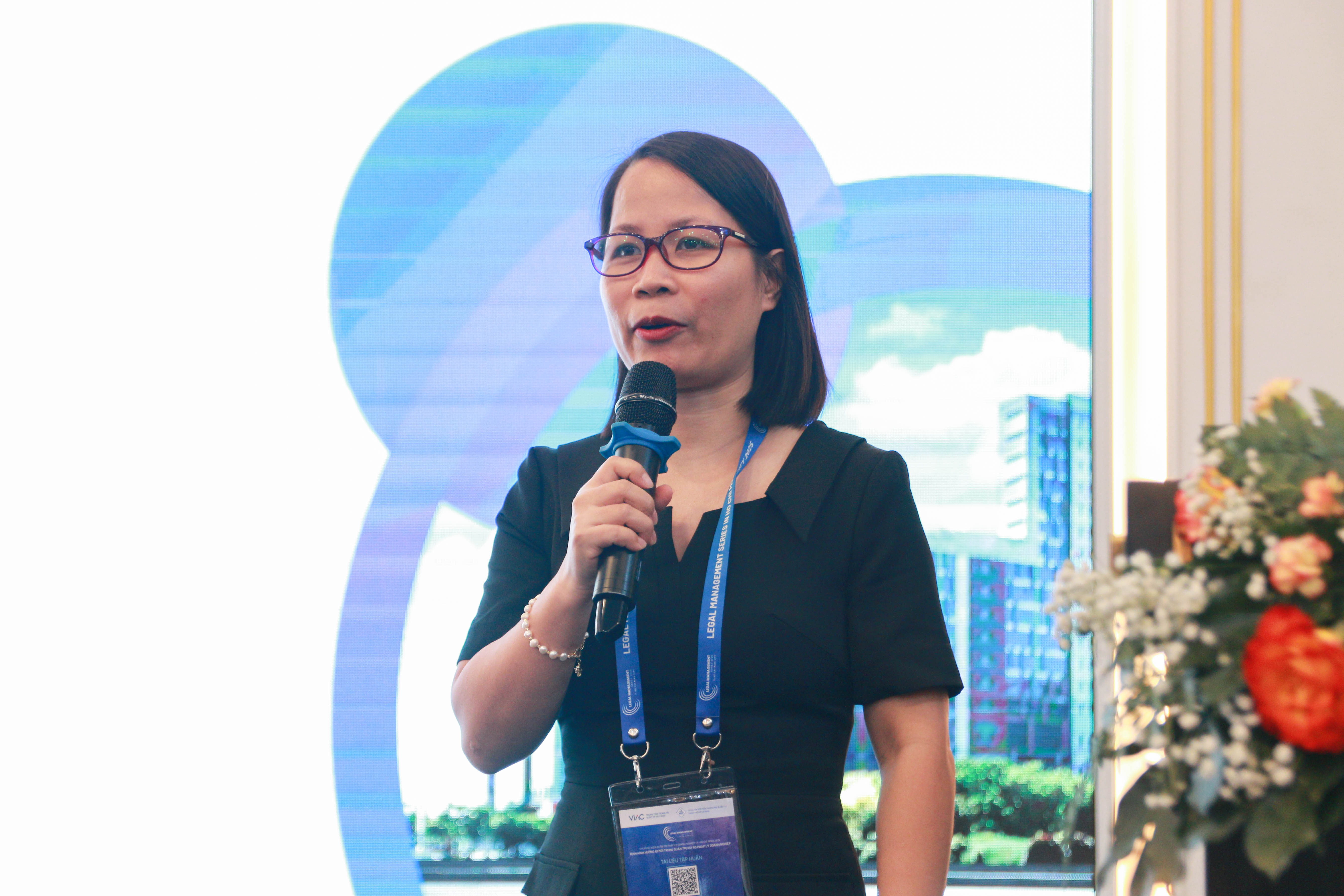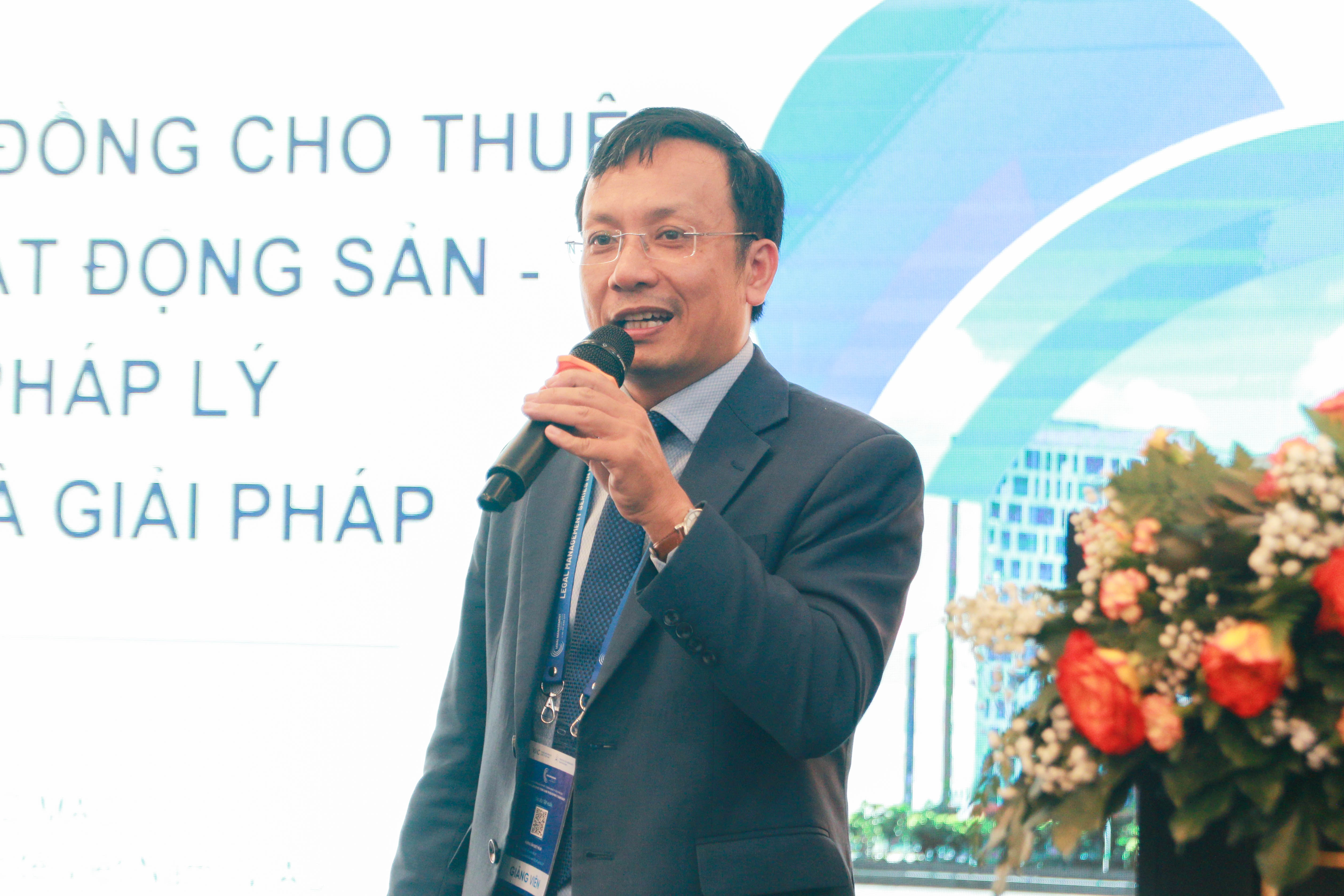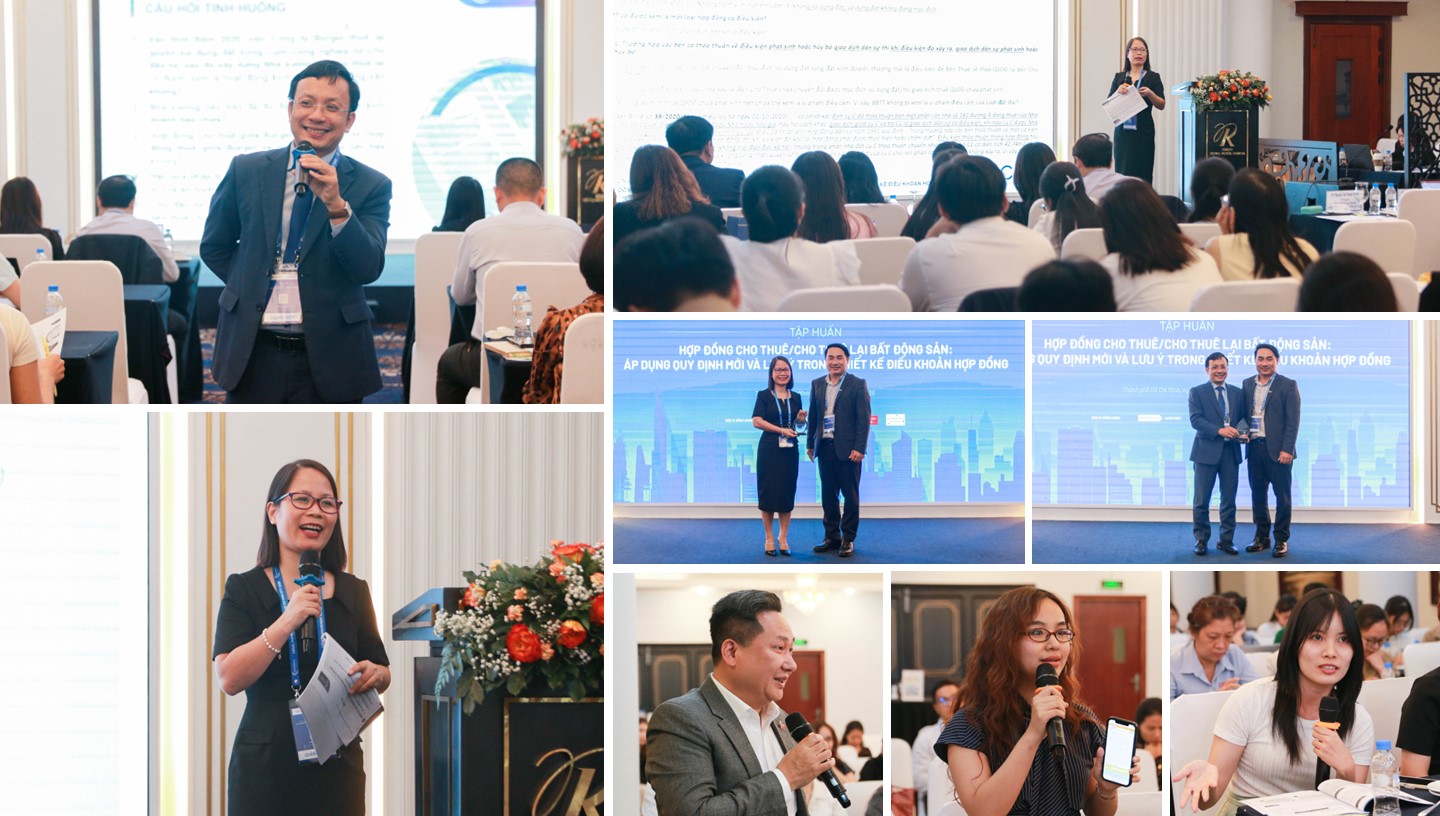On the afternoon of August 28, 2025, the Training workshop “Lease/Sublease agreement of Real estate: Application of new regulations and key considerations in drafting contractual clauses” was jointly organized by the Vietnam International Arbitration Centre (VIAC) with the Ho Chi Minh City Investment and Trade Promotion Centre (ITPC). The event brought together more than 150 enterprises and lawyers practicing in the real estate sector.
The workshop featured lectures by Mr. Phạm Quốc Tuấn - Managing partner of DIMAC Law Firm, Arbitrator of the Vietnam International Arbitration Centre (VIAC), Mediator of the Vietnam Mediation Centre (VMC), together with Ms. Nguyễn Thị Thanh Minh - Senior Counsel, Head of the Dispute Resolution Practice at ACSV Legal. The event is a continuation of the Conference on Legal Management Series in the real estate sector, held under the LMS 2025 series jointly organized by VIAC and ITPC.

Ms. Nguyễn Thị Thanh Minh - Senior Counsel, Head of the Dispute Resolution Practice at ACSV Legal
Notably, with respect to real estate leasing activities in industrial zones, the Law on Real Estate Business 2023 has significantly expanded the scope compared to the 2013 Law. Previously, neither domestic business organizations nor foreign direct investment (FDI) economic organizations were permitted to engage in activities such as: investing in infrastructure construction for transfer, lease, or sublease; to acquire land use rights with infrastructure for lease; or to lease land use rights with infrastructure for sublease. At present, however, these activities have been expressly recognized and legalized.
At the same time, the 2023 Law makes a clear distinction between two categories of foreign direct investment (FDI) economic organizations: those not subject to investment procedure requirements and those that are subject to such procedures. Specific legal bases are provided in Articles 10.1(b), 10.1(c), 10.1(d), 10.1(e), 10.4, and 10.5. Accordingly, compared with the previous regulations, enterprises now have greater flexibility in exploiting and conducting business with land use rights in industrial zones, while still being required to strictly comply with the relevant statutory conditions.

Mr. Phạm Quốc Tuấn - Managing Partner of DIMAC Law Firm, Arbitrator of VIAC, Mediator of VMC
In the practice of performing real estate lease and sublease contracts, Mr. Phạm Quốc Tuấn emphasized that enterprises must determine whether the real estate to be put into business is existing or to be formed in the future, as this factor has a certain decisive impact on many important elements of the contract. Under the applicable regulations, a lease/sublease contract must simultaneously satisfy the conditions relating to the lessor and the conditions relating to the real estate being put into business, pursuant to the Law on Real Estate Business and the Civil Code.
Mr. Tuấn cautioned that numerous legal risks may lead to the contract being subject to administrative sanctions or even invalid, such as: entering into a contract when the real estate has not yet satisfied business eligibility conditions; the lessor has not registered for the real estate business activities; or the property not meeting requirements on fire safety and environmental protection, or being used for improper purposes.
To mitigate this risk, enterprises may adopt flexible solutions such as: entering into contracts with property management and operation entities to lease out the property during the period pending completion of legal procedures and issuance of the certificate; or resorting to temporary legal arrangements such as deposit agreements, memoranda of understanding (MOUs), or business cooperation contracts (BCCs).
Participants actively engaged in discussions, raised questions, and exchanged views with the speakers on various practical issues. Through the Training workshop, attendees were updated on the latest legal regulations and notable practical cases concerning real estate leasing and subleasing transactions, thereby gaining valuable insights to develop more effective risk management strategies.

Some photos from the Conference
-------------------------------
INFORMATION ON EVENTS IN THE REAL ESTATE SECTOR | LMS 2025
| Conference "Real estate transactions under the fluctuation of market and legal framework" |
| Online Talkshow "Guarantees in off-plan housing transactions" |